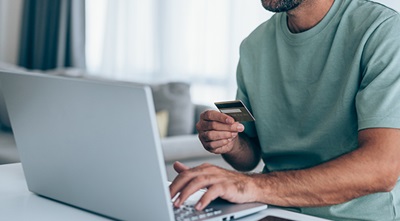Article
What to do when you lose your phone
Super and investments 101Date Posted: 23 August 2023
We all know the sinking feeling when you can’t find your phone, followed by the sigh of relief when you find it again. You don’t want to think about all the photos, messages and phone numbers you could have lost. Your smartphone also stores personal details, passwords and banking details; and some people keep their bank and credit cards or driver licence in their phone case. Imagine what could happen if this information gets in the hands of the wrong people. Enough reason to be careful, but if your phone is really gone, follow these steps to limit the impact.
1. Try calling the number straightaway
If you’re lucky, an honest person may have found your phone and you can make arrangements for its return.
2. Use tracking software
If you have tracking software installed on your device, use it to locate your phone. Apps such as ‘Find My Phone’ or ‘Find My Device’ can often help locate a mobile device that has been lost or stolen. Some phones even allow you to remotely lock it, so check if this is something you can do as well.
3. Contact your service provider
If you’re on a contract, contact your provider to deactivate the SIM card or suspend the service, so you don’t get an unhappy surprise come billing time. While you’re at, you can also ask them to redirect calls to a different number.
4. Cancel any credit cards that were linked to Apple or Google Pay
If you have credit cards linked to Apple or Google Pay, contact your bank to cancel these straight away.
5. Change important passwords
Although most phone theft is simply about the device itself, it’s possible that a thief may succeed in accessing your phone. To be safe, immediately change your passwords when your phone is lost or stolen. Also consider those accounts which require two factor authentication using your phone – there’s a risk your phone will be used to gain access to these accounts. You’ll need to contact your service providers to recover access to these accounts again.
6. Report it to the police
If you have your phone’s IMEI number, let them know. This is a unique 15 digit number which identifies your device. You can usually find this in the phone’s settings.
7. Check if you can submit an insurance claim
Some home content insurance policies include portable items, or you may have a phone plan insurance. Depending on the terms and conditions, you may be entitled to a replacement device if your phone is stolen.
8. Remain vigilant
Check your bills and online accounts for unusual activity for some time afterwards so you can act swiftly in case any accounts are compromised.
Be prepared
Be scam savvy
Scams are constantly evolving and with a growing reliance on technology it's important you understand how to keep your personal information safe. Things Mine Super would never ask you include:
- Making a withdrawal or rolling over your super to a third party;
- Confirming your details via social media; or
- Sharing your passwords (which is different to the security question you may have added to your account for phone based transactions!).
From time to time, we may call you to discuss your account with us. However, if you receive an unexpected call from someone claiming to be from your super fund and you’re not sure, simply hang up and call back using the phone number on the website – don’t accept a phone number from the caller as it could be fake. If the caller is pressuring you to make an urgent decision about your account, it’s highly likely to be a scam. For more details on how to recognise a scam, check out the How to recognise a scam article.